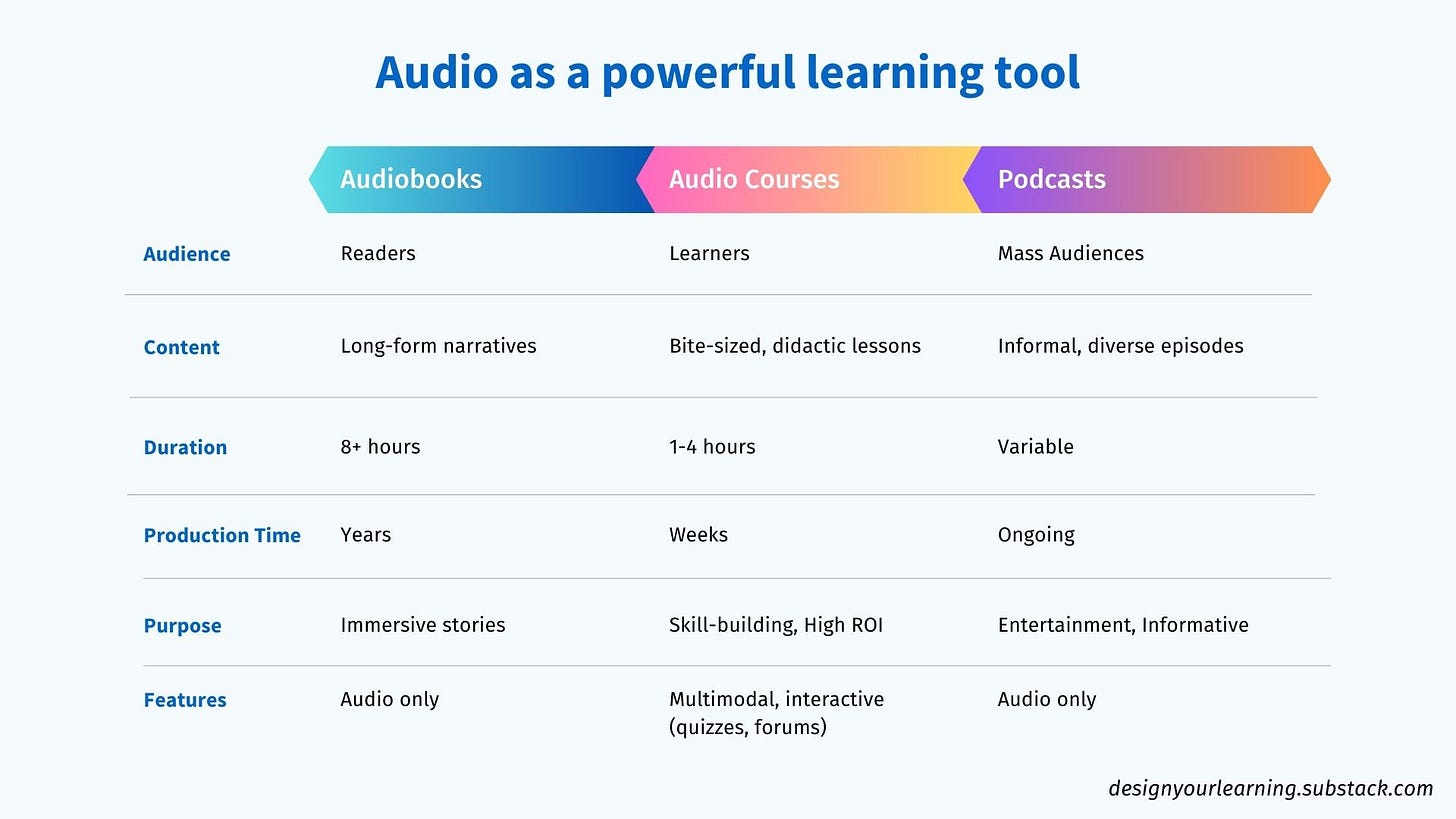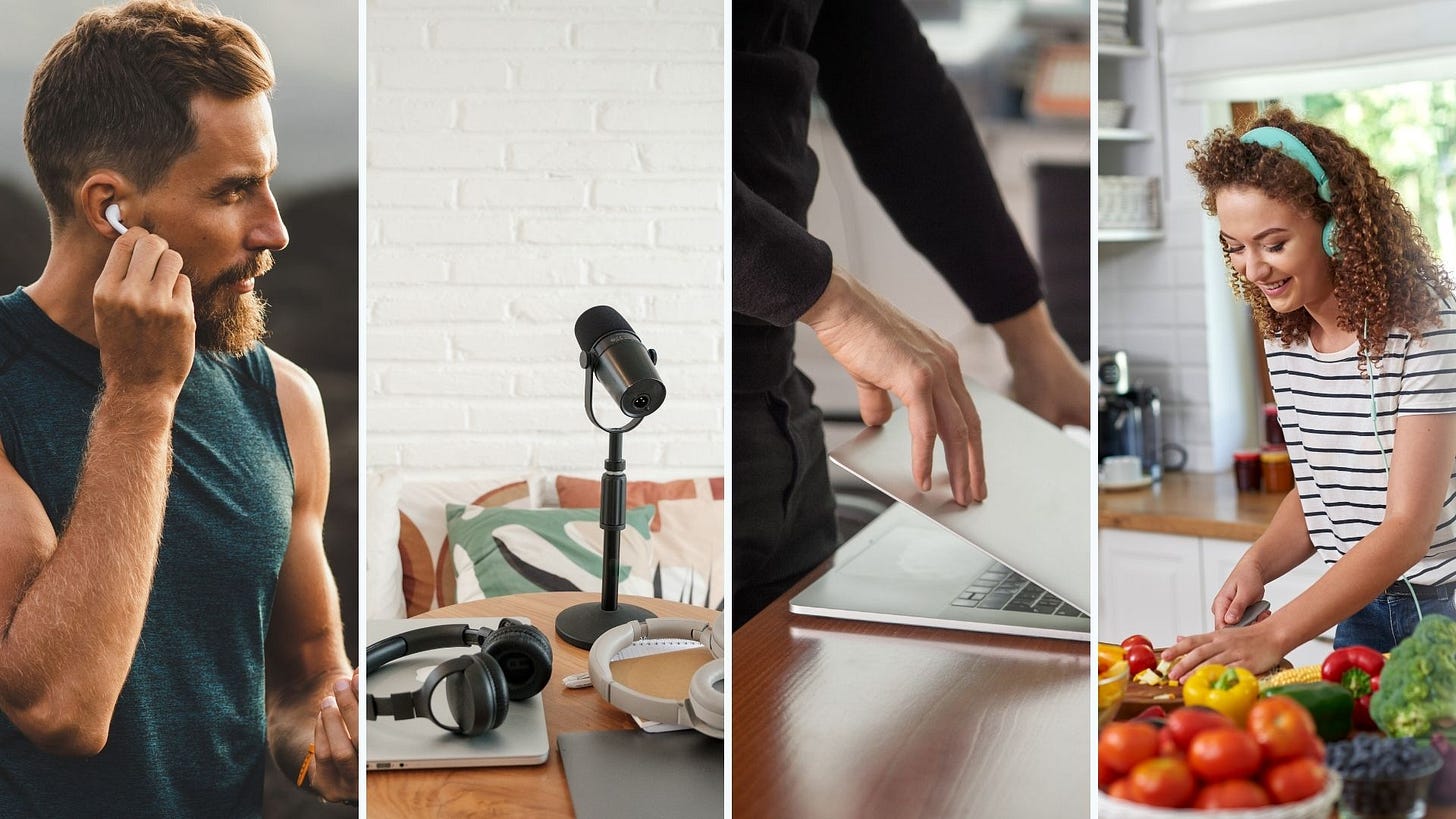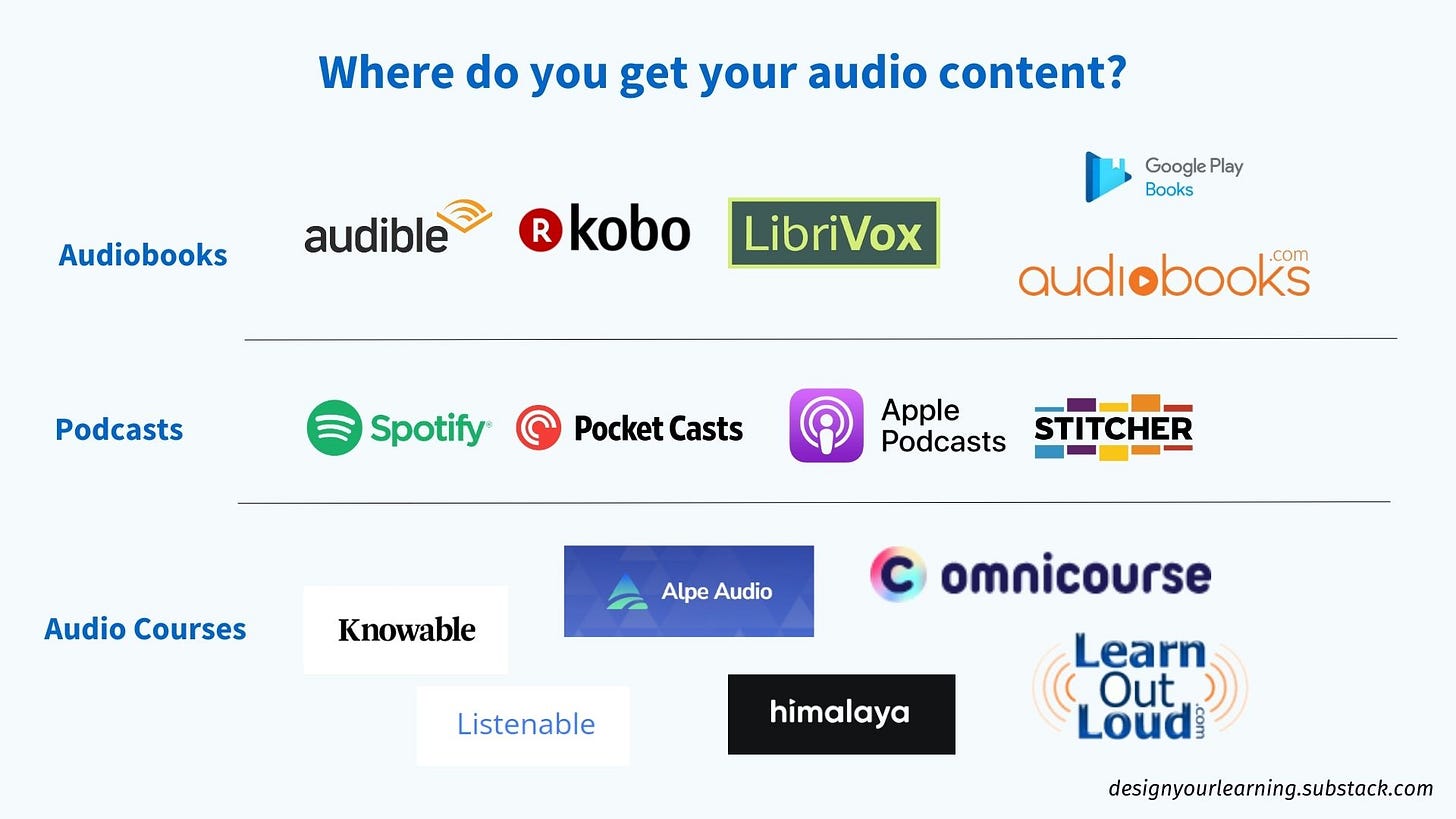Why you should add audio to your learning toolbox
Reclaim your learning journey without sacrificing your time. Learn how audio fits into your dynamic world.
Life has been a whirlwind lately. More people are investing their time in health and fitness, domestic and international travel is seeing a robust resurgence, and the once-missed hustle of daily commutes is back in full swing. Our social calendars are bustling again with dinner parties, family picnics, and friendly outings.
We're rediscovering the rhythm of our pre-covid lives.
While we're embracing this renewed zest for life, I’ve recently had a nagging realization. Amid all this constant motion, I've lost touch with something less tangible, but equally important: my personal learning journey.
As someone who prides himself on being a self-directed learner, it was sobering to realize that I had allowed my thirst for knowledge to be pushed to the sidelines. I read 50 books in 2020 and 2021, but since 2022, I am always falling short on my reading goals. Same story with the online courses.
Don’t get me wrong, we don't need to be constantly cramming knowledge into our brains. Yet, I was left wondering, "Isn't there a way to keep learning without having to sacrifice my other commitments?"
Enter Audio Based Learning 📚
Audio is a powerful tool that allows us to absorb new information while we continue with our daily tasks. Tons of new apps are making it simpler than ever to learn new skills or enrich our knowledge, all through the power of audio.
Audio learning engages and educates simultaneously, allowing us to upskill during everyday tasks like household chores, commuting, working out, and even gaming.
The content isn't restricted to just courses either. Personally, I find stories and interviews to be powerful learning tools.
Audio courses, audiobooks, and podcasts are all excellent options for learning. I’ve learned a lot about philosophy, fitness, and history through podcasts, and important life lessons through audio biographies.
If you prefer more structure and a way to test your skills, you can check out audio courses.
What's Driving the Audio Boom? 📈
Several dynamics are fueling this rise in audio-based learning:
Technology: The omnipresence of audio wearables, smart automobiles, and intelligent speakers has made listening experiences more seamless than ever. There is a shift in the way we consume media, wherein individuals consistently interact with audio content.
Practicality: Audio integrates swiftly into our daily routines, accompanying us on a walk, during a workout, or on a drive.
Specificity: With a vast array of topics to choose from, listeners can cater to their niche interests.
Screen Detox: As we navigate through virtual meetings and binge watching Nteflix, audio provides a much-needed escape from screen time.
The Intersection of Audio Learning and Visual Context 📝
When I mention that I listen to audiobooks and philosophy podcasts during my gym sessions, I'm often met with baffled expressions. Yet, for me, it is a primary motivation to hit the gym. Engaging with an audiobook allows me to assimilate knowledge while physically working out, creating an interesting blend of mental and physical exercise.
In the beginning, combining weight training with absorbing an audiobook or a course can be challenging. But trust me, it gets easier. As a bonus, I remember information more clearly when I can connect it with my visual surroundings.
For instance, a portion from the book Shoe Dog about Phil Knight securing financing from a Nissho, a Japanese trading firm is as vivid in my memory as a rejuvenating run along the Albert Park lake in Melbourne.
Curious about this, I sought an explanation from ChatGPT. Turns out, my experience finds its roots in two key cognitive concepts: context-dependent memory and dual coding theory. Context-dependent memory suggests that recall is often better when it's in the same environment where the information was encoded.
Dual coding theory posits that encoding information in two different ways—visual and verbal in this case—enhances recall.
I wasn't sure if these two concepts accurately described my experience, so I double-checked with ChatGPT. Its response was:
"Memory and learning are complex and influenced by a multitude of factors. These theories provide a helpful framework but might not capture the entirety of your unique learning experience. You might also be experiencing elements of the 'method of loci' or 'memory palace' technique, a mnemonic device that involves associating information with specific physical locations."
I actually relate more to its second reply, but nonetheless, I learned something new and realized that I shouldn't always take ChatGPT's responses at face value.
Your Turn 🎧
For the uninitiated, here's a simple guide to kickstart your audio learning journey:
Begin with light, fun content. Choose podcasts, interviews, or lectures on topics you find interesting.
Gradually experiment with different types of content and playback speeds.
Identify opportunities to listen: at the gym, during commutes, while cooking, or doing other menial tasks.
Always ensure your safety, especially while driving or working out.
If you don’t enjoy the content, switch it up. An exciting topic can be dull due to a boring narrator and vice versa.
Most apps allow you to bookmark points of interest, so don't fret about note-taking. If your hands are free, you can jot down points or record a voice note.
Where Can You Find Quality Audio Content? 🔍
Everywhere. The internet is full of them. Audible for audiobooks. Spotify for podcasts. Youtube for lectures (lots of great content from the likes of Stanford and MIT, get premium to listen to audio only).
Here’s some more tools you can check out:
Through audio, you can pursue lifelong learning and personal enrichment in science, history, literature, religion, and more, with no tests or homework ;)
So what are you gonna learn and listen to next?
Until next time, happy learning.
by Ayush






